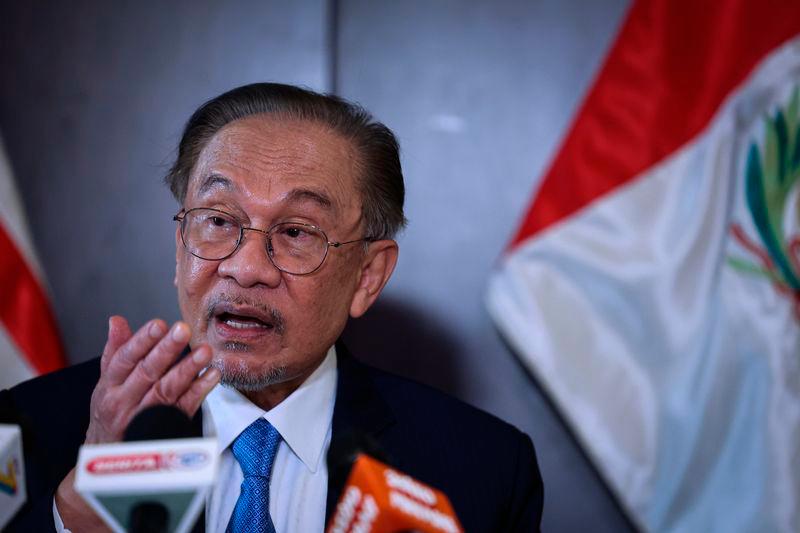KUALA LUMPUR: Prime Minister Datuk Seri Anwar Ibrahim’s diplomatic engagements this month, which include visits to several countries, notably in Latin America, are seen as pivotal in enhancing Malaysia’s global standing, especially ahead of the ASEAN chairmanship next year.
His remarkable leadership on the international stage reflects a firm commitment to elevating Malaysia’s prestige globally, while underscoring the nation’s assertive stance on foreign policy matters.
Since taking office on Nov 24, 2022, the 77-year-old Prime Minister’s proactive approach to global issues and regional affairs has garnered widespread praise, notably for his vocal advocacy on the genocide of the Palestinian people. His high-profile stance has brought much-needed attention to the humanitarian crisis on the world stage.
Political analyst Associate Prof Dr Tunku Mohar Tunku Mohd Mokhtar, from the Department of Political Science of the International Islamic University of Malaysia (IIUM), believes that Anwar’s visits to several countries this month, since Nov 9, namely Egypt, Saudi Arabia, Peru and Brazil, have significantly strengthened Malaysia’s diplomatic ties, expanded existing cooperation in various sectors, and further elevated the country’s international prestige.
“In Egypt, there is a lot of collaboration in the field of higher education, especially with Al-Azhar University, which can be further strengthened. In Peru, Malaysia was honoured when its president conferred the prestigious Order of the Sun of Peru on Anwar, her country’s highest recognition.
“Anwar succeeded in using his diplomatic flair to increase cooperation in trade and technology relations. The 31st APEC Economic Leaders’ Meeting (AELM) in Lima, Peru, was also used to establish better relations with the Chinese technology company, TikTok, in addition to courting the Muslim community in Peru to increase Islamic preaching cooperation there,“ he told Bernama, today.
The Prime Minister began with an official visit to Egypt at the invitation of President Abdel Fattah El-Sisi, before heading to Riyadh, Saudi Arabia, to attend the Extraordinary Arab-Islamic Summit, which discussed the latest situation in Palestine and Lebanon, as well as regional developments.
Following that, Anwar led the Malaysian delegation to the 31st APEC Economic Leaders’ Meeting (AELM) (Nov 14-16), in Lima, Peru, and then to Rio de Janeiro, Brazil, to fulfil President Luiz Inacio Lula da Silva’s invitation to attend the G20 Summit.
In Peru, Anwar was awarded the highest honour of the Peruvian government, which is the Order of the Sun of Peru or ‘El Sol del Peru’, which was conferred on Anwar by the President of Peru, Dina Ercilia Boluarte Zegarra, in a ceremony held at the Government Palace in Lima on Nov 13.
Tunku Mohar highlighted that Anwar’s diplomatic efforts have not only fostered strong ties with the countries he visited, but also demonstrated his readiness to lead ASEAN, building personal relationships with top leaders worldwide.
“This will help him in introducing ASEAN at the international level, and further facilitate the improvement of ASEAN’s cooperation with outside regions,“ he said.
Tunku Mohar also views the consistent stance brought by Anwar, by bringing a motion to stop the Israeli regime’s brutality against Palestine, at the Extraordinary Arab and Islamic Summit in Riyadh, Saudi Arabia on Nov 11, resulting in a fairly good resolution and sowing the early seeds of Ummah unity.
He stressed that Anwar’s consistent assertion was a courageous move, to make the international community aware of the Palestinian issue, which is not only a religious issue, but a humanitarian conflict, which needs to be resolved.
“Malaysia’s stance has been consistent for a long time... he (Anwar) has long criticised the West’s one-sided attitude in favour of the Zionist regime in Israel,” he said.
Similarly, senior lecturer at Universiti Teknologi Malaysia’s Faculty of Social Sciences and Humanities, Associate Professor Dr Mazlan Ali described Anwar’s proactive approach, especially taking steps to meet Latin American countries, as having great influence in terms of trading partners.
“These countries have long been in economic unions, such as APEC. In fact, Malaysia’s participation in BRICS which also includes Brazil, one of the key members of this coalition,” he said.
He added that having links with those countries, will help Malaysia bolster its image and potential, especially in solidifying its position as ASEAN chair.
Mazlan pointed out that, in addition to maintaining strong relations with China and ASEAN countries, exploring new trading partners in South America is crucial. This exploration, especially in sectors like the economy, education, and technology, will be a key area of focus. The Prime Minister’s first visit to the region since taking office is seen as the beginning of Malaysia’s efforts to tap into investment opportunities in the region.
“Countries such as Brazil, Egypt and Peru are also good markets, especially for the palm oil sector. This indirectly increases the opportunity to export national products there.
“From a geo-political point of view, these (countries) can be strong advocates for Malaysia, because our products, such as palm oil for example, sometimes face negative campaigns from European countries,” said Mazlan, who also believes that those countries can be an alternative coalition in support of the country’s oil palm industry.
Mazlan also highlighted the Prime Minister’s unwavering stance on the Gaza genocide issue, particularly his call for Israel’s expulsion from the United Nations (UN).
“Today, we’ve seen a shift in Australia’s position, traditionally a strong ally of the United States and Israel. It now opposes Israel’s stance on Palestine being recognised as a UN member state. This shift is a direct result of Malaysia’s consistent support for Palestine. I am confident that countries like Brazil and Peru will stand with Malaysia on this issue,” Mazlan said.









